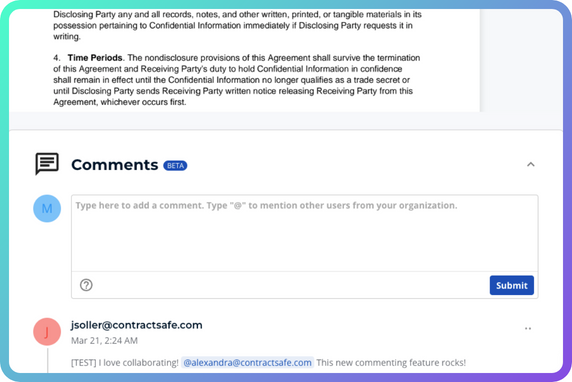What is an Agreement
An agreement is a mutual understanding between two or more parties that outlines the rights, obligations and terms of their relationship. It means that everyone is on the same page about a particular matter. Unlike contracts, agreements may or may not be legally binding. Agreements can be written, oral or implied, though written agreements are generally easier to enforce in legal settings.
What are the Different Types of Agreements?
Informal Agreements are often verbal or based on a handshake, these outline a simple understanding. While not always enforceable in court, they can still help build trust and cooperation.
Formal Agreements are written documents that specify specific terms and conditions of the understanding. Common types used in business include:
- Non-Disclosure Agreements (NDAs) to protect confidential information
- Service Level Agreements (SLAs) to define the expected level of service from a provider
- Letter of Intent (LOIs) to express initial commitments in a negotiation. Legal enforceability depends on how they're written
- Memorandums of Understanding (MOUs) outlines the basis of collaboration between organizations
What are the Essential Elements of a Legally Binding Agreement?
For an agreement to be legally binding, it typically must include the following elements:
- Offer: A clear proposal by one party to another, outlining specific terms and conditions
- Acceptance: An unequivocal agreement to the offer's terms
- Awareness: An mutual understanding of the terms and conditions
- Consideration: Something of value exchanged, such as money, goods, services or promises to act (or refrain from acting) in a certain way.
- Capacity: All parties involved must have the legal ability to authorize the agreement.
- Legality: The agreement's purpose must be lawful. It cannot involve illegal activities.
Get Started with ContractSafe Today





